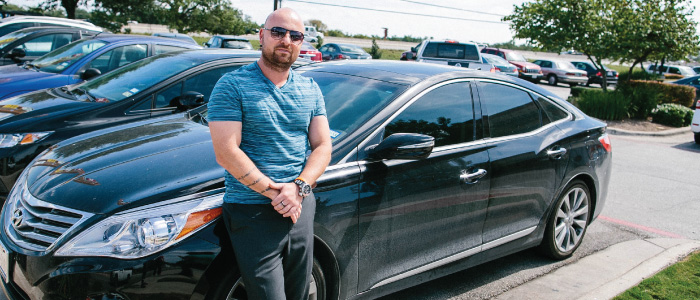Purchasing a Used Vehicle, Post-Disaster

Any time a natural disaster strikes, the effects can be far-reaching and long-lasting. This is particularly true for the auto industry. Regardless of whether you live in an area that is highly susceptible to natural events such as hurricanes, tornadoes, or earthquakes, it’s important to educate yourself. Consider these five ways you can be sure you’re making a smart choice for you when selling or purchasing a vehicle after a disaster.
Decide Where You’ll Buy
After a significant disaster takes place, it’s likely that local demand for vehicles may increase, while supply would simultaneously decrease. That means prices in the affected area will be inflated. Unfortunately, some unsavory types might try to take advantage of this situation and attempt to manipulate prices. While it certainly does cost dealerships more to ship vehicles in from different areas, beware of prices that are higher than they should be. One way you can ensure fair pricing is to purchase a vehicle outside of the area affected by the disaster. These markets should have an adequate supply and fair prices.
Do Your Research
When purchasing a used vehicle after a disaster, be sure you know the vehicle’s history. Be on the lookout for damaged vehicles. Many credit unions, including UFCU, are happy to generate a CarFax™ report for you that will contain historical information about the used vehicle you’re interested in purchasing. A CarFax report will list reported accidents, damage history, previous owners, mileage, and service history, as well as the location in which the vehicle was most recently owned. With this information, you can determine whether the vehicle might have been in a disaster-stricken area. Although this is a useful tool, it may not always be comprehensive because they can only report the information they have been given. (Insurance companies and vehicle repair shops are not required to report to CarFax in Texas.)
Call us at (512) 498-CARS (2277), (800) 252-8311, or stop by any branch to learn more.
Beware of Salvage Vehicles
Another potential risk is purchasing a vehicle that has been labeled a “Salvage Vehicle.” According to the Texas Department of Motor Vehicles, “A salvage motor vehicle means the vehicle was damaged to the extent that the cost for repair, which includes materials and labor, was more than the vehicle was worth before it was damaged. Insurance companies usually make this determination.” Dealers have learned to overcome this designation on a vehicle’s title by “washing” the title. This occurs when a dealer takes a vehicle from one state and titles it in another state. (The salvage designation does not follow the vehicle from state to state.) Then they return the vehicle to the original state and re-title it. With this last title, the salvaged or branded designation is no longer listed. But there is a possible solution.
Get an Inspection
Given the great lengths that unethical dealers go to cover up such salvage vehicles, the average car-buyer would be hard-pressed to uncover such a situation. The best way to avoid this situation is to find a reputable used car inspector to perform a multi-point vehicle inspection, preferably an Automotive Service Excellence (ASE) Master Technician and Frame Specialist. Obtaining such an inspection can significantly reduce the risk of buying a damaged vehicle.
Do Your Due Diligence
While some of these situations may seem overly cautious, in the long run, performing your due diligence can save you from purchasing a damaged vehicle that would need future repair work. It also can prevent you from having to sell the vehicle later due to the damage or the loss in value. Industry experts are estimating that anywhere from 500,000 to 1 million vehicles were either damaged or considered a complete loss due to Hurricane Harvey in 2017.
Thank you for your feedback.